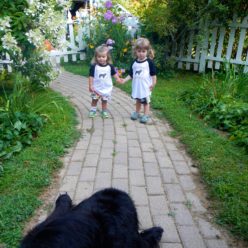It’s amusing and edifying to revisit the last “Curious David” blog I wrote for the Milwaukee Journal Sentinel (JSOnline) before they discontinued (terminated) their educational community bloggers.
Pioneering Web 2.0 Learning Tools
By David Simpson
Monday, Sep 1 2008, 09:32 AM
I’m nervous and excited. Time to take
off my invisibility cloak. Tomorrow
(Tuesday, September 2, 2008 at 8:00 a.m.)
I meet in person for the first time with my
20 first-year students. What an immense
responsibility to be their first professor!
We’re going to explore 21rst
century learning tools such as blogs,
wikis, podcasts, social networks, virtual
worlds, and Youtube.? The idea for this
course emerged from my
experiences writing this Curious David
blog column. Last year’s opportunity to
write for JSonline was transformative for
me as I learned from elementary and
secondary school teachers, high school
students, virtual school advocates, retired
faculty and readers about innovations,
challenges and successes they faced
promoting learning.
In this first-year seminar we shall focus
on some of the 25 free learning tools
described by educator Jane Hart. As we
examine these learning tools we hope to
answer questions such as these:
1. To what degree can these web
tools truly enhance student learning?
2. To what degree are they just
cool tools?
3. Could they be used to develop
critical thinking?
4. Do they improve or degrade
communication skills?
5. Might they be applied to fostering
cross-cultural or international
understanding?
6. Might they strengthen or weaken
writing skills?
7. What are their weaknesses or
dangers? Should they complement or
replace 20th century learning
skills/tools?
8. How can one evaluate their
effectiveness?
We shall read two books—Little Brother,
a work of fiction (maybe it is fiction) and a
work of nonfiction Dispatches from Blogistan. My
intent is to assist students in the transition
from high school to college—and to
investigate Web 2.0 learning tools which
might be useful across classes and in the
workplace. I want to involve them in
educational experiences that will develop
and enhance abilities in reading, writing,
reflecting, presenting, thinking, and
producing. Writing exercises will include
papers, journals, blogs/wikis, and exams.
Presentations will be both formal and
informal; individual and in small groups.
Collaboration will be both with fellow
students and with me
I welcome reader feedback about
this course. I’d gladly share a course
syllabus in .pdf format which has many
hypertext links. (Indeed, I’d welcome
reassurance that I still have readers after a
two month hiatus!).
Still Curious,
David
email me at dsimpson@carrollu.edu.
Tomorrow’s final exam may give me some insight into what the students have learned. Interestingly, I received an email today from someone in Great Britain interested in the course.
It is my intent to begin (renew) serious writing in a blog format starting in January. I’ll most likely use Type Pad.
I’ve learned so much—and have so much to learn.

